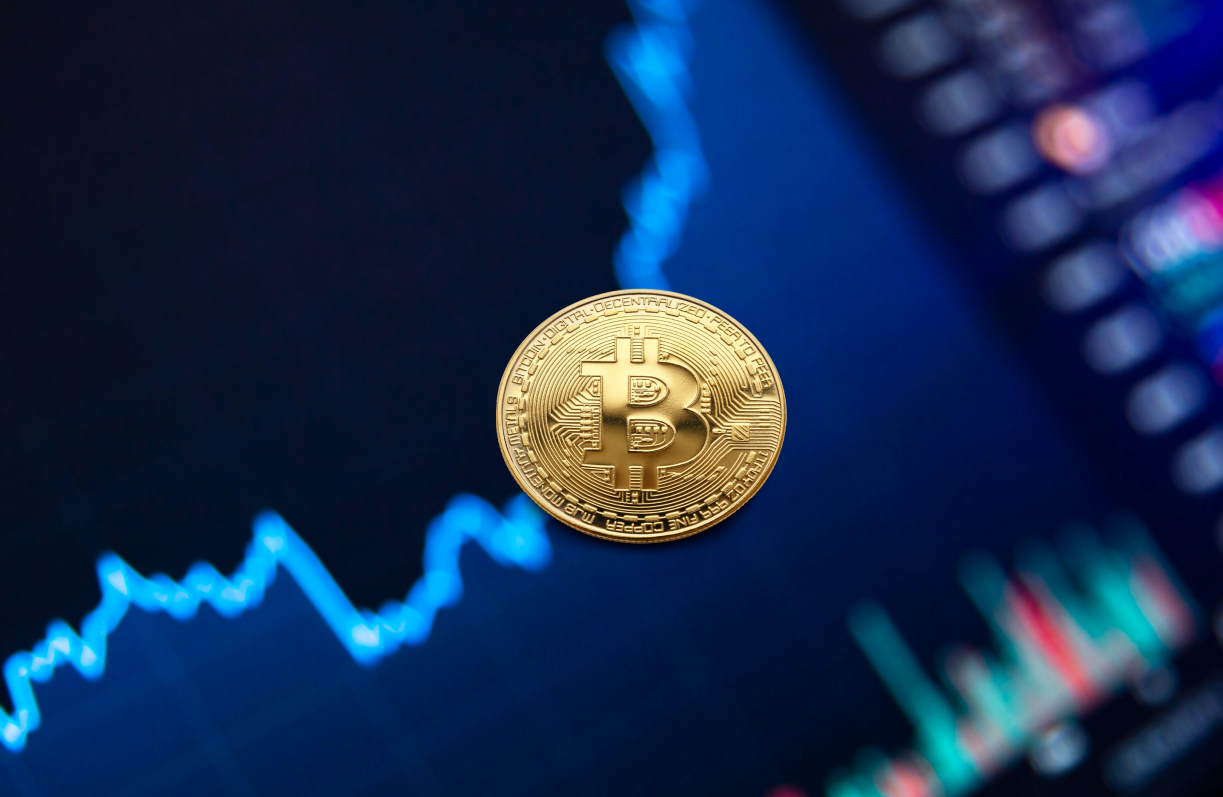Bitcoin in the High-Inflation World
Bitcoin has not behaved like an inflation hedge this year. But is it possible to find a reliable short-term inflation hedge in the current monetary policy regime? And what does Bitcoin really hedge?
No refuge
This year has been brutal for most assets. Both stocks and bonds are down by double digits year-to-date.
Year-to-date performance of stocks* (blue) and bonds* (orange)
* iShares MSCI ACWI ETF and iShares Core U.S. Aggregate Bond ETF
Traditional inflation hedges like gold and CPI-linked US Treasuries are in red this year, providing even less inflation compensation than USD cash. CPI-linked US Treasuries (excluding very short-term ones) actually underperform same-duration US Treasuries because of higher real rates.
The year-to-date performance of gold (yellow) and CPI-linked US Treasuries* (green)
* iShares TIPS Bond ETF. The chart is price-only (without coupons), but the total return chart does not differ much
There are few assets that compensated for inflation this year. The most notable examples are energy equities and selected emerging markets, but these are niche assets that can be advised for sophisticated investors only. In order to understand the difficulty level, consider that Brazil's stock market outperformed inflation this year, but the Russian stock market, which is historically highly correlated to Brazil, has been destroyed, burning investors’ money.
The year-to-date performance of energy stocks* (blue), Brazil stocks* (green), and Turkey stocks* (orange)
* Energy Select Sector SPDR Fund, iShares MSCI Brazil ETF and iShares MSCI Turkey ETF
Reflexivity of monetary policy
The dismal performance of most assets this year is explained by monetary policy tightening, which in turn is caused by too high inflation. Thus, inflation destroys wealth not only by direct reduction of purchasing power but also by triggering higher rates and lower nominal asset prices. That makes the case for the USD cash being the best inflation hedge. It may sound very counterintuitive to hedge inflation by holding cash rather than real assets, which should theoretically increase in price more or less in line with inflation, but it does work this way in developed countries having long-established inflation targeting regimes (at least in the short-term). When inflation is benign, central banks allow for loose monetary policy, boosting asset prices and often inflating bubbles. When inflation becomes too high, central banks hike rates and deflate asset prices. Most assets do not work as inflation hedges in the short-term, because their prices before inflation becomes uncomfortably high are overstated by previous loose monetary policy. In other words, monetary policy is reflexive to inflation, making intuitive correlations obsolete.
Longer-term, it’s a different picture. I’m particularly amazed that everyone complains that stocks and Bitcoin do not compensate for inflation this year, but it’s rarely noted that the 5-year performance of stocks and Bitcoin is still very good compared to inflation accumulated during this period. Even a relatively short 2-year interval shows Bitcoin comfortably outperforming inflation and stocks being in line with it. Many (if not most) assets do hedge against inflation, but only in the long term.
I guess complaints about this year's performance are down to many investors purchasing stocks and crypto in 2021 at their all-time highs. It’s tough advice for those investors, but they should not confuse mistakes in market timing with the quality of assets they bought.
5-year performance of stocks* (blue), Bitcoin (orange), and US accumulated inflation (green), indexed at 100 at the period beginning
* S&P 500
2-year performance of stocks* (blue), Bitcoin (orange) and US accumulated inflation (green), indexed at 100 at the period beginning
* S&P 500
What does Bitcoin really hedge
Like most other assets, Bitcoin may not be a great short-term inflation hedge. Longer-term Bitcoin investment has been so far a great wealth creator, hugely outperforming accumulated inflation (although past performance is of course no guarantee of future returns).
I have more confidence in what Bitcoin does hedge in the short term. First, Bitcoin is a haven during hyperinflation. If a central bank is not as attuned to inflation as in long-established inflation-targeting regimes, Bitcoin (like gold and reserve currencies) becomes the asset of choice, since it can not be printed by the central bank. While unlikely in the US and most other developed countries, it makes the case for investing in Bitcoin for residents of higher-risk countries.
Second, Bitcoin is a great hedge against deflation. Contrary to high inflation, deflation (or just a threat of deflation) leads to monetary policy loosening and supports asset prices, particularly long-duration assets like crypto. I believe the deflation threat caused by a global recession will become a major macro theme sometime next year, probably benefiting both Bitcoin and broader crypto.
*This communication is intended as strictly informational, and nothing herein constitutes an offer or a recommendation to buy, sell, or retain any specific product, security or investment, or to utilise or refrain from utilising any particular service. The use of the products and services referred to herein may be subject to certain limitations in specific jurisdictions. This communication does not constitute and shall under no circumstances be deemed to constitute investment advice. This communication is not intended to constitute a public offering of securities within the meaning of any applicable legislation.




